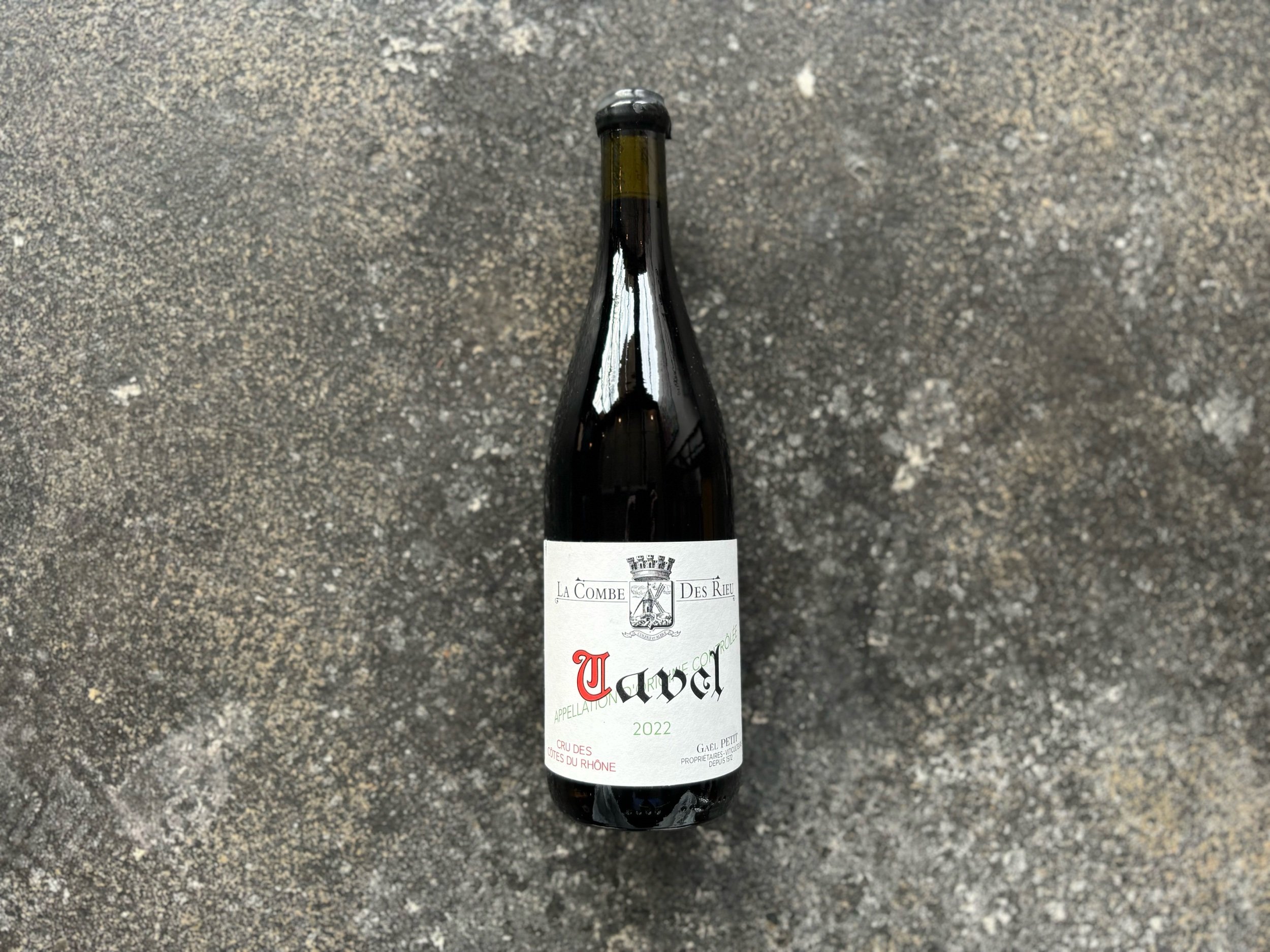 Image 1 of 1
Image 1 of 1


Gaël Petit ‘La Combe des Rieu’ Tavel 2022
Location: France, Rhône, Tavel
Winemaker: Gaël Petit
Grapes: Grenache, Cinsault, Carignan
Soil: lauzes (white limestone over clay)
Winemaking: Whole-cluster fermentation in concrete tank with indigenous yeasts lasts 5-8 days. Lightly crushed clusters are layered with intact whole clusters. Occasional light pump-overs. Aged 275-L used barrels.
From us at M&L: We are pleased to present ‘la Combe des Rieu’! As Hemingway wrote, it is the wine of young love. This is the breeze blown into the stuffy apartment you shared with someone special; it’s the first drink of water after hours in the garden; it’s the bowl of frozen plums in Williams’ icebox; it’s the rain that breaks the heat; it’s a late, late night at an otherwise empty beach…
Made from mostly Grenache, Cinsault, and Carignan from soils known as lauzes - slate-like slabs of white limestone over a thin layer of clay; this terroir is typical of the combe du Malaven zone of the Tavel AOC. Parcels are co-planted and include small percentages of Mourvèdre, Clairette, Bourboulenc, Clairette Rose, Grenache Blanc, Grenache Gris, and Carignan Blanc. Enjoy with the Summer’s bounty of fried or steamed clams, a legume and grain salad with feta, or anything off the grill.
From the ever sagacious, always loquacious Importer Kermit Lynch: Gaël Petit’s family history is deeply intertwined with that of Tavel. Records show his ancestors inhabited the quaint, sunny Provençal village across the Rhône from Châteauneuf-du-Pape as far back as the 16th century, practicing viticulture for generations leading up to present day. His great-grandfather, a former mayor of Tavel, even played an important role in the foundation of the AOC, having outlined the production area eligible for France’s first rosé to receive appellation status in 1936.
Gaël launched a micro-cuvée from a selection of old vines from the domaine’s top vineyard sites starting with the 2018 vintage. For this new departure, he opted for a whole-cluster, infusion-style vinification with native yeast, drastically reduced sulfur usage, allowed the wine to complete its malolactic fermentation, and bottled it without fining or filtration.
Location: France, Rhône, Tavel
Winemaker: Gaël Petit
Grapes: Grenache, Cinsault, Carignan
Soil: lauzes (white limestone over clay)
Winemaking: Whole-cluster fermentation in concrete tank with indigenous yeasts lasts 5-8 days. Lightly crushed clusters are layered with intact whole clusters. Occasional light pump-overs. Aged 275-L used barrels.
From us at M&L: We are pleased to present ‘la Combe des Rieu’! As Hemingway wrote, it is the wine of young love. This is the breeze blown into the stuffy apartment you shared with someone special; it’s the first drink of water after hours in the garden; it’s the bowl of frozen plums in Williams’ icebox; it’s the rain that breaks the heat; it’s a late, late night at an otherwise empty beach…
Made from mostly Grenache, Cinsault, and Carignan from soils known as lauzes - slate-like slabs of white limestone over a thin layer of clay; this terroir is typical of the combe du Malaven zone of the Tavel AOC. Parcels are co-planted and include small percentages of Mourvèdre, Clairette, Bourboulenc, Clairette Rose, Grenache Blanc, Grenache Gris, and Carignan Blanc. Enjoy with the Summer’s bounty of fried or steamed clams, a legume and grain salad with feta, or anything off the grill.
From the ever sagacious, always loquacious Importer Kermit Lynch: Gaël Petit’s family history is deeply intertwined with that of Tavel. Records show his ancestors inhabited the quaint, sunny Provençal village across the Rhône from Châteauneuf-du-Pape as far back as the 16th century, practicing viticulture for generations leading up to present day. His great-grandfather, a former mayor of Tavel, even played an important role in the foundation of the AOC, having outlined the production area eligible for France’s first rosé to receive appellation status in 1936.
Gaël launched a micro-cuvée from a selection of old vines from the domaine’s top vineyard sites starting with the 2018 vintage. For this new departure, he opted for a whole-cluster, infusion-style vinification with native yeast, drastically reduced sulfur usage, allowed the wine to complete its malolactic fermentation, and bottled it without fining or filtration.
